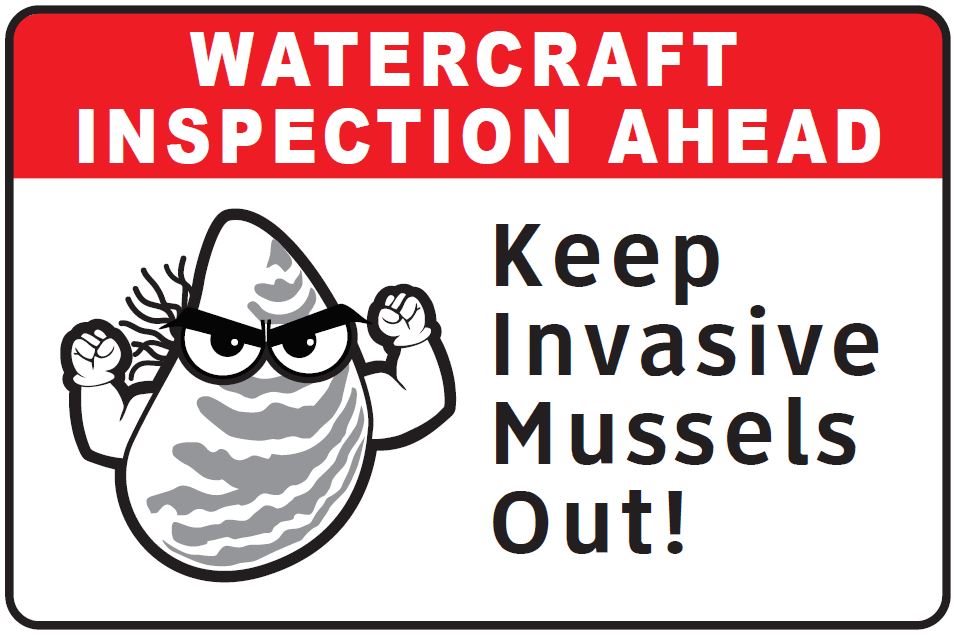 BC is on guard against nasty invasive mussels that attach themselves to boats in freshwater. (Not to be confused with useful muscles attached to people.)
BC is on guard against nasty invasive mussels that attach themselves to boats in freshwater. (Not to be confused with useful muscles attached to people.)
Specifically it’s quagga and zebra mussels that we’re preventing from entering our province. That’s why on BC’s roads you might see signs for watercraft inspection stations. If you’re transporting a watercraft in BC, it’s mandatory to stop and report to all invasive mussel watercraft inspection stations along your travel route. Watercraft includes sailboats, motorboats, car toppers, kayaks, canoes, and paddle boards being transported in BC. The B.C. Conservation Officer Service has a team of specialized inspectors checking, and if necessary, decontaminating watercraft being transported into BC.
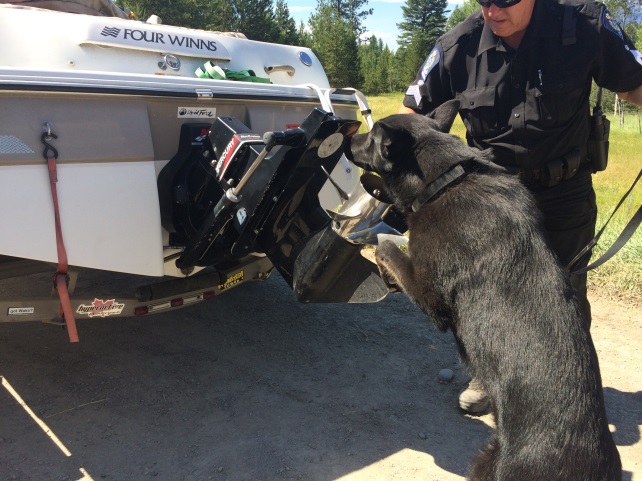
If it floats, the B.C. Conservation Officer Service wants to take a look.
Why all the fuss over these little guys? These small, freshwater mussels can wreak havoc if they get into our province. If your watercraft has been in a province or state with mussel infested waters, the invaders can (unbeknownst to you) hitch-hike into BC, by attaching to your boat, boat trailer, boat motor or other equipment.
Quagga and zebra mussels multiply rapidly and are extremely difficult to get rid of. They can cause widespread economic and ecological damage, as documented in this 2023 report by the Ministry of Water, Land and Resource Stewardship, including:
- clogging pipes in hydroelectric, municipal, water treatment, industrial, agricultural and recreational facilities;
- contaminating drinking water;
- displacing native aquatic plants and wildlife;
- threatening commercial and recreational fisheries, and;
- degrading the environment.
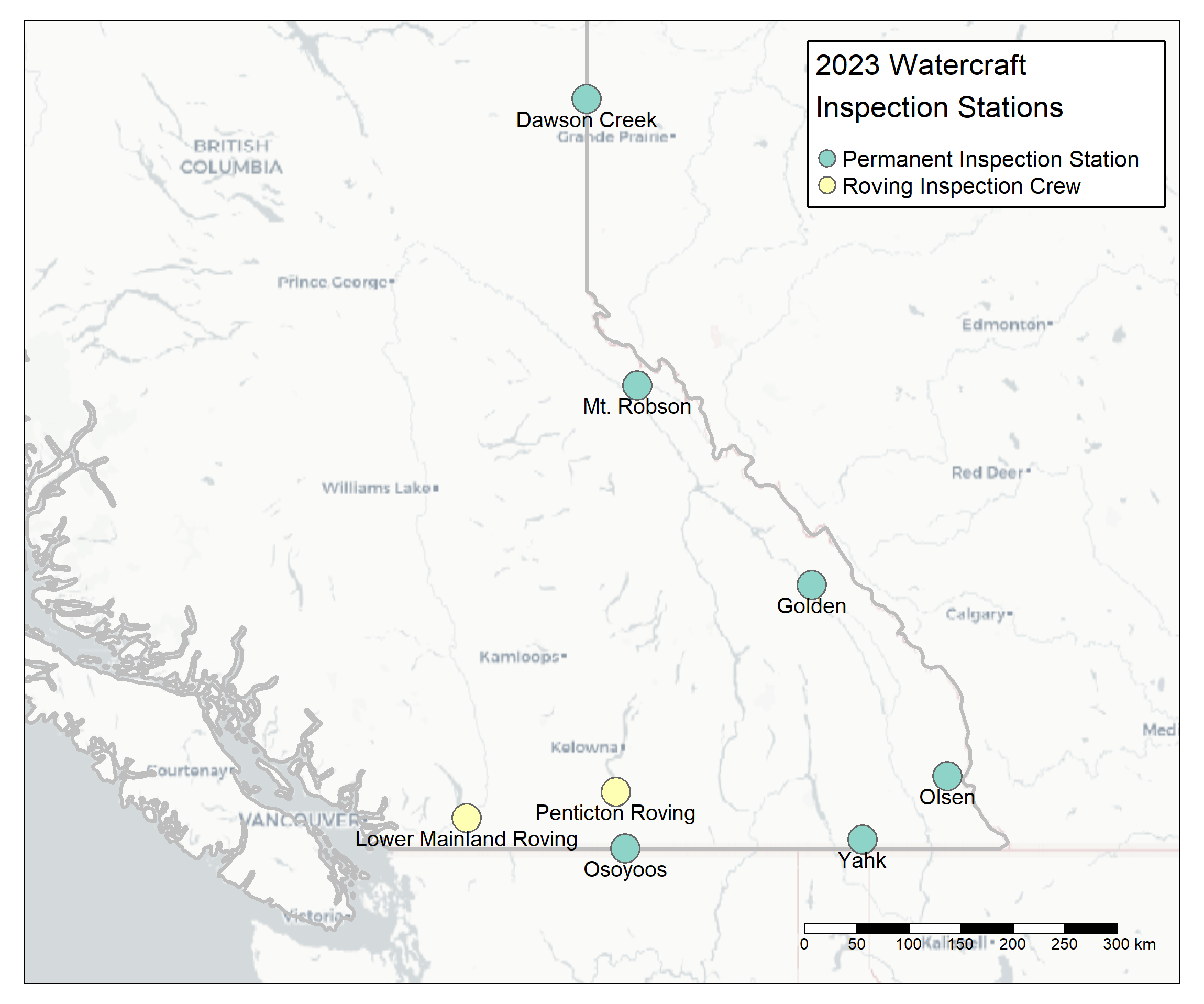
What You Can Do
Please do your part by cleaning, draining and drying your boat. Anyone who transports a boat into or within BC needs to clean the boat, trailer and other equipment by completely removing aquatic animals, plants and mud; draining all water out of bilges, ballast tanks, engines or live wells, and; ensuring their boat is dry.
If you’re bringing a boat to British Columbia from out-of-province, contact the Invasive Mussel Provincial Program at COS.Aquatic.Invasive.Species@gov.bc.ca to determine if your boat is high risk, and should be decontaminated for possible zebra or quagga mussel presence, before accessing BC’s lakes and rivers. It’s free!
Do not launch the boat into any BC waters until you have received instruction from a BC Provincial Aquatic Invasive Species Inspector.
And when you see a watercraft inspection station and your boat is aboard, pull over as you are required by law. Tickets are being issued to motorists for failing to stop at a watercraft inspection station. Failure to clean mussels off boats or equipment could result in a fine of up to $100,000.
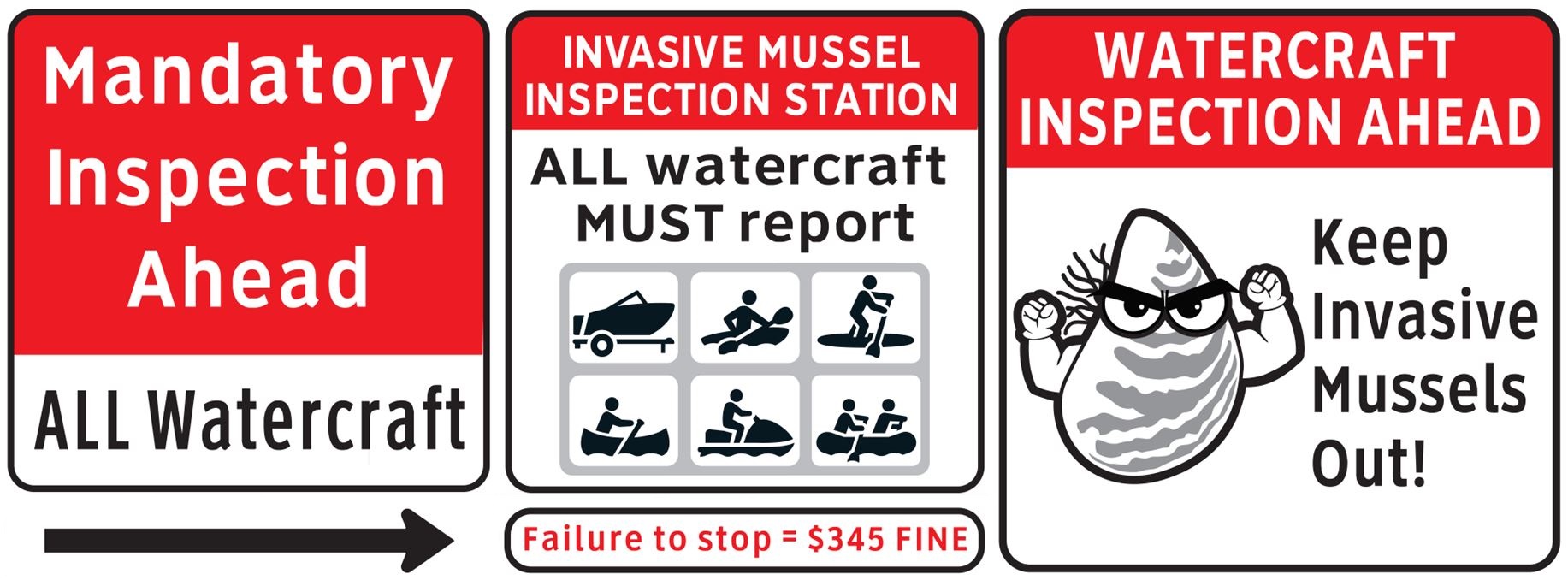
Join the defence and keep these dastardly invasive mussels out of our province!
By the way, we (the BC Ministry of Transportation and Infrastructure) updated our highway maintenance contracts to require maintenance contractors to inspect freshwater bridges and culverts for invasive mussels (while conducting other inspections) and report any signs of mussels. More eyes out there working to keep BC mussel free!
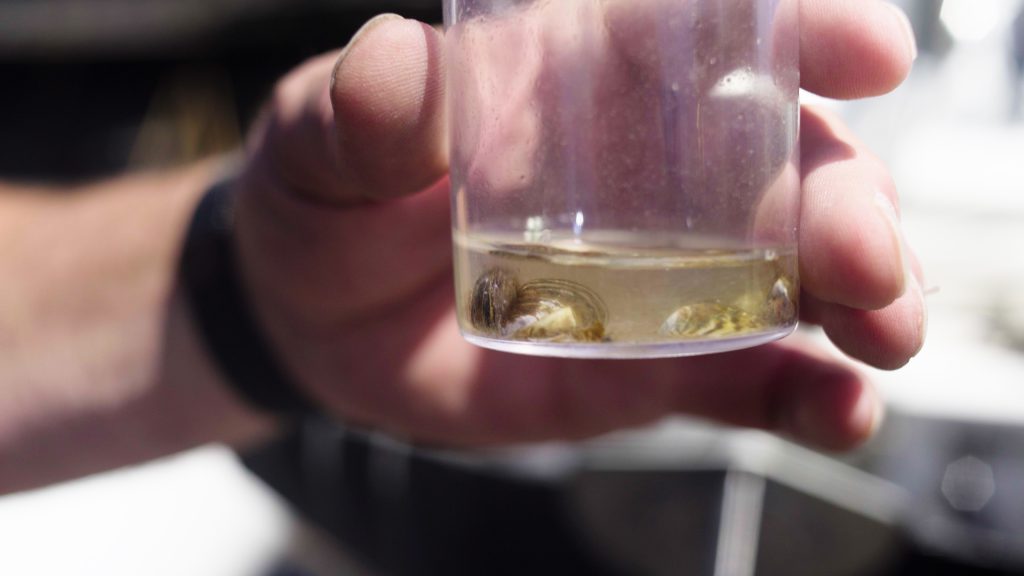
A Little More about those Mussels: Anatomy of the Quagga and Zebra Mussel Invasion
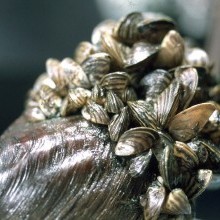 Quagga mussels and zebra mussels were introduced from Europe into Canada and the U.S., in the 1980s. Since then, they’ve spread in Ontario and Quebec and are now found in 24 American states, including California. In October 2013, zebra mussels were discovered in Lake Winnipeg, Manitoba.
Quagga mussels and zebra mussels were introduced from Europe into Canada and the U.S., in the 1980s. Since then, they’ve spread in Ontario and Quebec and are now found in 24 American states, including California. In October 2013, zebra mussels were discovered in Lake Winnipeg, Manitoba.
Zebra and quagga mussels can survive for several weeks without being immersed in water, if they are in a cool and moist environment. Tiny mussel larvae can float undetected in live-wells, pumps, bilges, bait buckets and other fishing gear, surviving for several weeks. This video shows how they transfer from one body of water to another. Learn more about zebra mussels (Dreissena polymorpha) and quagga mussels (Dreissena rostriformis bugensis).
Do you have a question about invasive species for us (or the BC Ministry of Water, Land and Resource
Stewardship)? Ask below!
Learn more how the Ministry of Transportation and Infrastructure and community volunteers are keeping invasive plants along roadways:
Abrasive, Pervasive and Invasive – Taking On BC’s Foul Flora
i contract area 10 we have huge potholes on highway 3A at thrums area glade area and opposite the major mill kaleskikoff lumber and opposite the 711 on nelson avenue highway 3 A we have sent photos with e mails to the highways minister local highways manager and road and bridge contractor
no one has the common decency and or respect to acknowlede the complaint or repair the highway hazards
shame on the transportation infastructure to stoop so low ,as to use non cummunicationa and non action to reported highway defects we worked 35 years for the regional operations and this would not happen under an engineers direction give your heads a shake
Hello Robert – we have sent your comment to the local area manager for review. Thanks for connecting with us here.
who goes after the boats that fail to stop at the checkpoints
Hi there,
The inspectors report watercraft that fail to stop at the inspection stations to the Report All Poachers and Polluters Hotline (RAPP) for full time conservation officers to respond.
What is being done about invasive mussels that are already established in Lakes?
Hi there,
We have sent your question to our environmental team for review and reply. Stay tuned!
Hello again James,
Our environmental crew has informed us that we are lucky in BC that we don’t have any lakes with invasive mussels! That is why we are going to such a big effort to prevent them from arriving in BC by educating the public, conducting mandatory boat inspections, and decontamination for boats with invasive mussels on them. We work closely with other provinces and states as well on preventative efforts.
Here is a link to more info:
https://www.for.gov.bc.ca/hra/invasive-species/index.htm